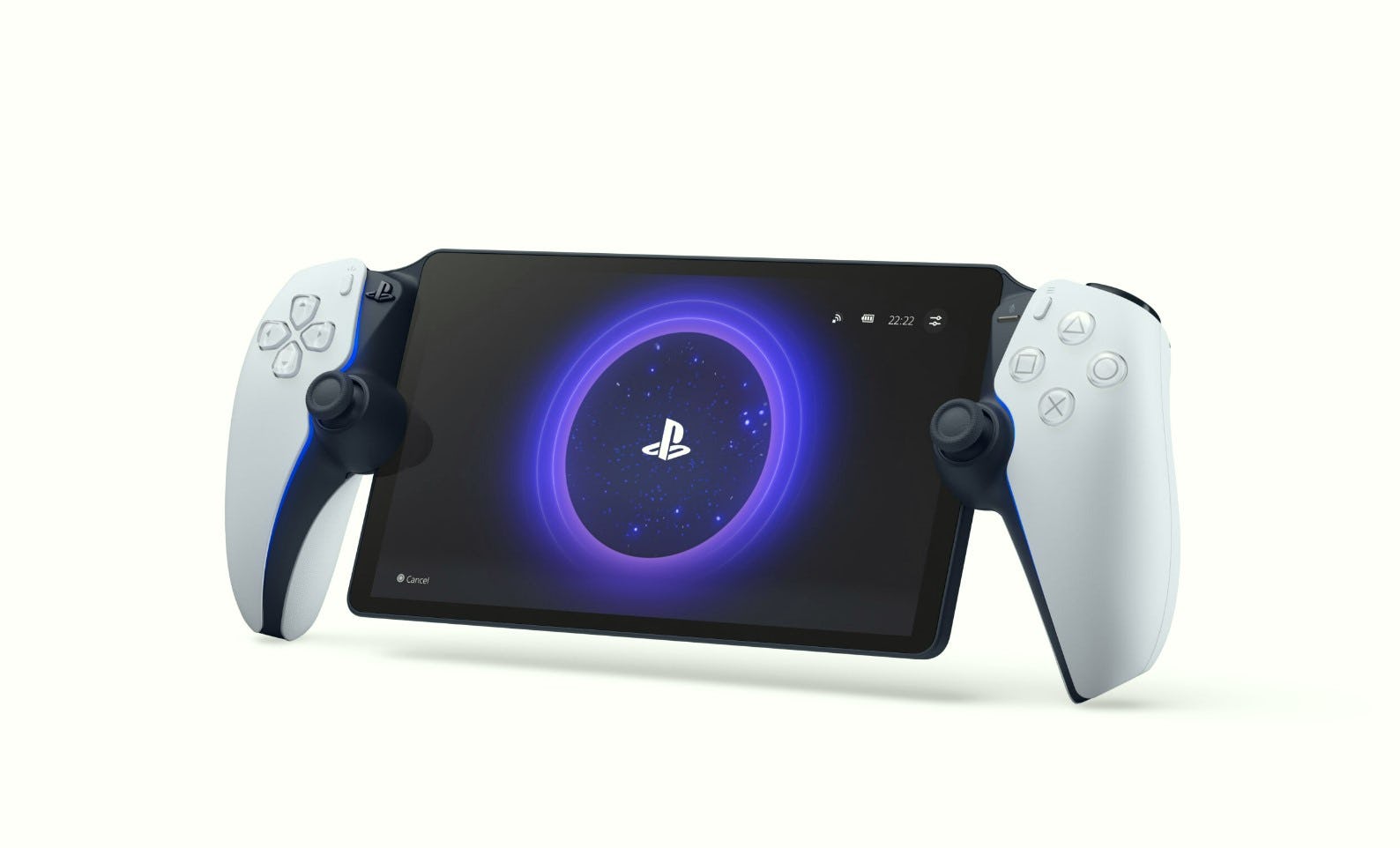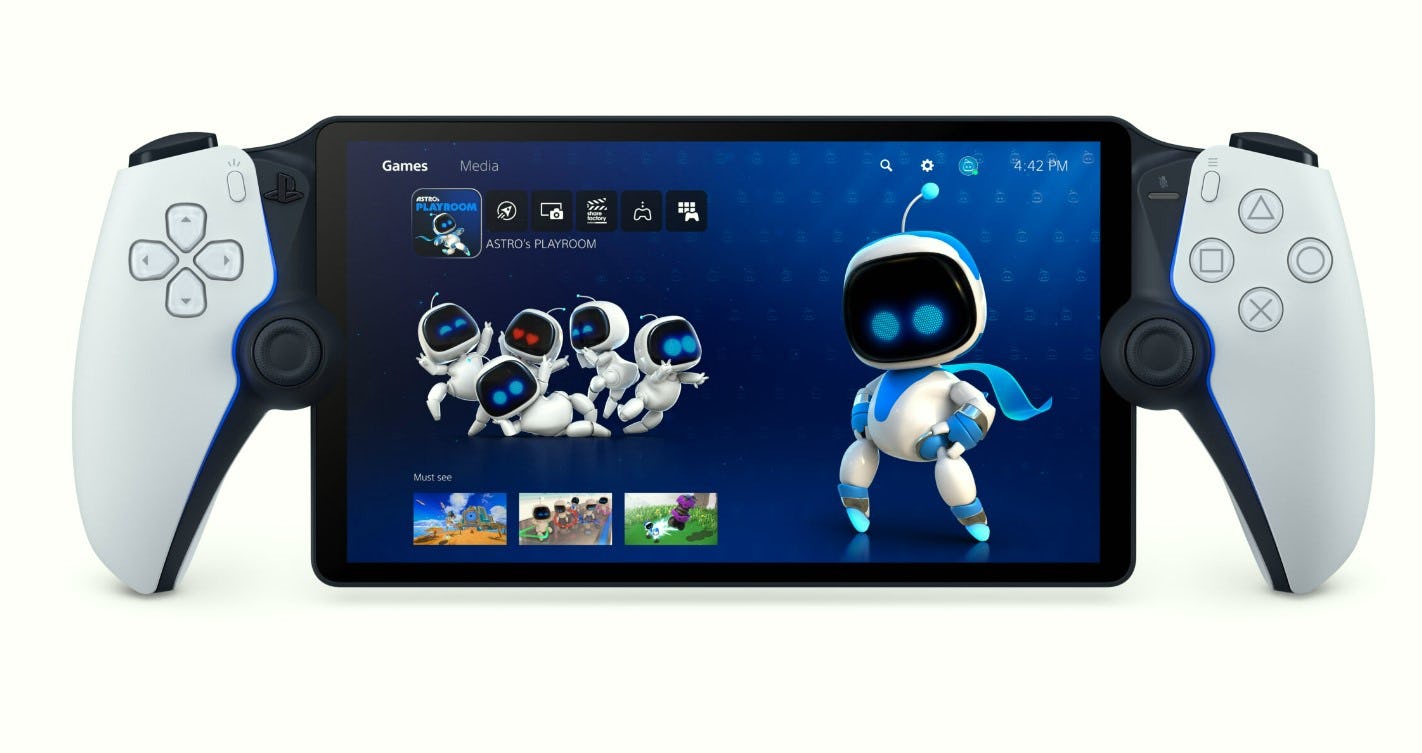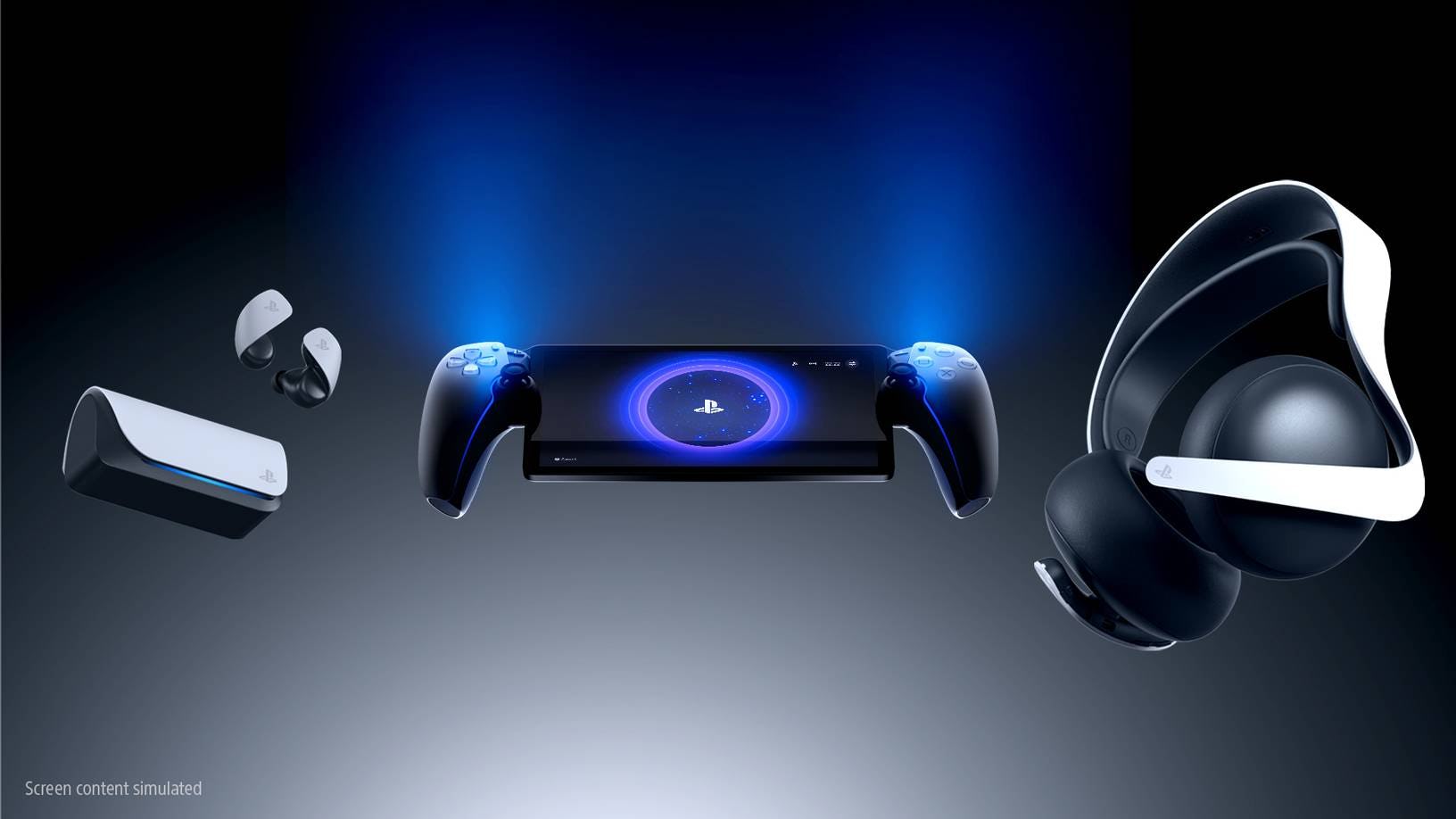
The likes of the Nintendo Switch and Steam Deck have ushered in a new golden age of handheld gaming that people playing the original Game Boy could only have dreamed of. Not wanting to miss out on the trend, Sony revealed its latest handheld — Project Q — earlier this year. Now officially called PlayStation Portal, the handheld looks to give players portable access to their PS5 titles.
There are some major caveats to the Portal, but a surprisingly consumer friendly price point. Here’s what we know about PlayStation Portal.
What is PlayStation Portal?
Originally revealed as Project Q, Portal is Sony’s answer to the success of handheld gaming hardware like the Nintendo Switch and Steam Deck. This is by no means Sony’s first foray into handhelds, as the company previously made the PlayStation Portable and PlayStation Vita which earned cult followings for their compact design and amazing catalog of indie titles. But the Portal is a little different than the PSP or Vita, and still not quite a Switch or Steam Deck.
That’s because the Portal isn’t actually a portable console in itself. To play PlayStation games on your Portal, you need to already own a PlayStation 5, as the Portal uses Remote Play to stream games to the handheld rather than play them natively. This means that the handheld will have to contend with latency issues based on the strength of your Wi-Fi signal. It also means that the Portal isn’t quite the travel-friendly gaming machine that the Switch and Steam Deck are, as you can’t play games on the device without a Wi-Fi connection — no God of Wår on the plane for you.

The design of the Portal is a distinctly PlayStation take on the modern gaming handheld, with a sleek 8-inch LCD screen with 1080p resolution at 60 fps and controllers on either side of the screen. The controllers look like they split a DualSense down the middle and threw a screen in between the halves, which is almost exactly what they did as the Portal’s controls have all the functionality of the DualSense including adaptive triggers.
Connectivity on the Portal is pretty standard. It has a USB-C port for charging, though the 3.5mm audio jack comes as something of a surprise. Though the inclusion is probably to make up for the lack of bluetooth on the Portal, which is a shocking choice but not one that is out of the ordinary. Nintendo didn’t implement Bluetooth on the Switch until four years after the console’s release. Instead, Portal will focus on PlayStation Link, the company’s new wireless audio technology.
PlayStation Portal Release Window
We still don’t have an official release date for PlayStation Portal, but a PlayStation Blog post on August 23 revealed the handheld is scheduled to launch “later this year.”
Sony’s major fall release is Insomniac’s Spider-Man 2 on October 20, and we wouldn’t be surprised to see the portal launch right around that time. That said, Portal could launch in November, right around the holiday giving rush. Demo units are in the wild, so we suspect the launch isn’t too far off.
PlayStation Portal Price

The August 23 blog post also revealed the price of PlayStation Portal — 199.99 USD | 219.99 EURO | 199.99 GBP | 29,980 YEN. That’s a surprisingly great price point for the handheld, and comes as something as a shock considering how Sony has a tendency to charge a premium price for its hardware, such as PSVR2.
As a secondary device that works in tandem with the PS5, the $199.99 price point doesn’t feel too out of reach, and it comes in at the same price as the Switch Lite. This will hopefully give the device a fighting chance.
PlayStation Portal Battery Life
One of the most important features for handheld gaming devices in this power-hungry generation is battery life. It’s one of the biggest things that still holds back the Steam Deck, as playing the most recent AAA titles looks great but only lasts a couple hours due to the high-power consumption required.
Sony has yet to give any details about the battery specifications of the PlayStation Portal, or how long the battery can be expected to last under heavy loads. According to a hands-on preview from IGN, Sony has yet to finalize the battery in the Portal which is why it has kept quiet on details. While streaming takes less energy than running games natively, the DualSense capabilities of the Portal’s controller could be a big energy drain.







